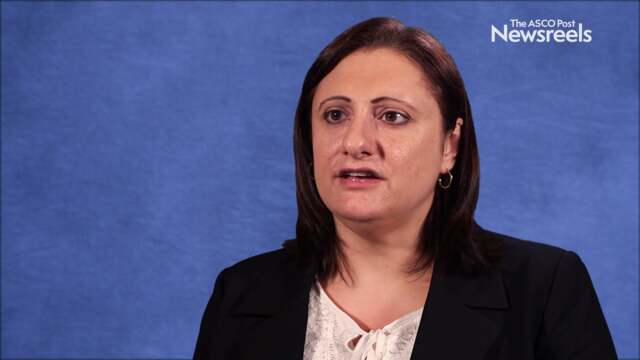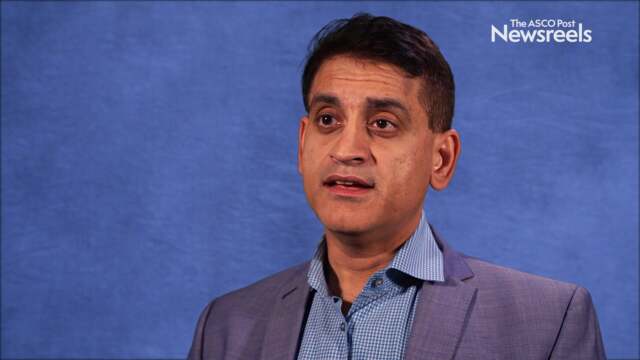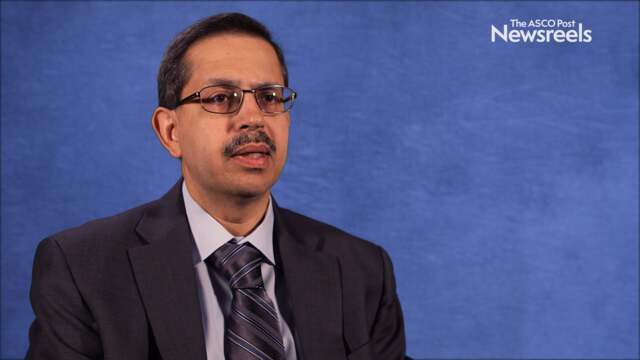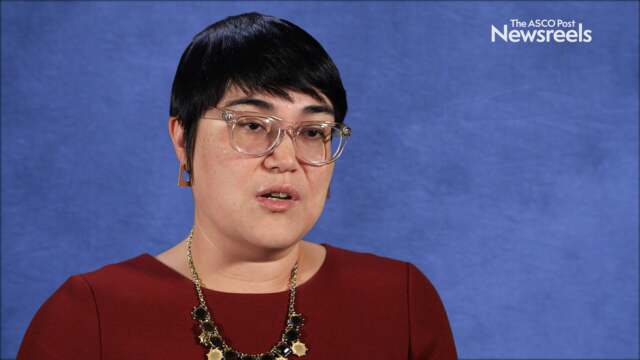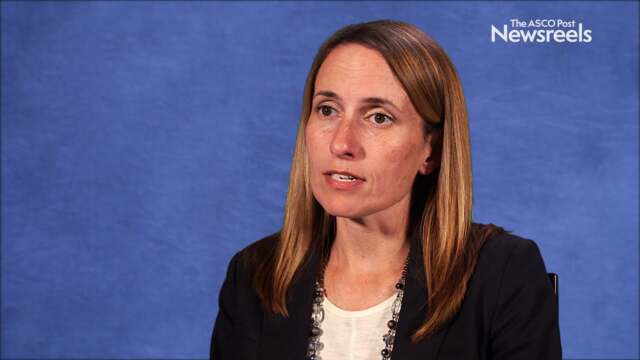Aaron Lyss, MBA, on Getting the Highest-Value Quality Intervention
2018 ASCO Quality Care Symposium
Aaron Lyss, MBA, of Tennessee Oncology, discusses ways that clinicians and patients can employ the most cost- and treatment-effective measures, clinical trials, and incident learning systems.
Angela M. Stover, PhD, of the University of North Carolina at Chapel Hill, discusses study findings on ways to alert clinicians when patients signal symptoms such as pain or diarrhea that may be cause for concern (Abstract 158).
Simron Singh, MD, MPH, of Sunnybrook Health Sciences Centre, discusses initial results of his data on a new patient experience measurement strategy used at Cancer Care Ontario.
Neeraj K. Arora, PhD, of the Patient Centered Outcomes Research Institute (PCORI), discusses his work at PCORI and the central role that patients play in improving care and outcomes.
To learn more, visit https://www.pcori.org/.
Fumiko Ladd Chino, MD, of Duke University, discusses results from a population study she conducted of the opioid epidemic over the past 10 years and why these medications for cancer pain should continue to be excluded from restrictive-prescribing laws (Abstract 230).
Lauren P. Wallner, PhD, MPH, of the University of Michigan, discusses her findings from a population-based study, which showed that many patients believe they had no choice about whether or not to receive radioactive iodine, even though it often does not improve survival. There is a need, she says, for better shared decision-making (Abstract 159).
